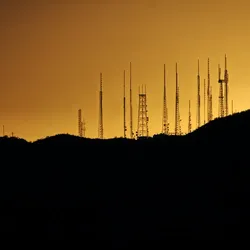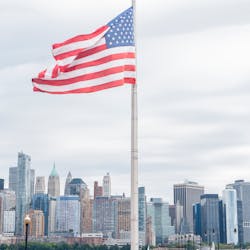
Level 1:
Climate change is a big problem. Every day, there are floods, fires, and heatwaves. The floods are very bad. They make everything wet and destroy homes. Fires are very hot and can burn everything. Heatwaves are when it gets very, very hot. It makes people sick and hurts plants. We need to do something about climate change. We can use wind and sun for energy. We should not cut down too many trees. Governments and businesses should help too. We can make things better if we work together.
Level 2:
Climate change is a big problem that affects our world. Every day, we see floods, fires, and heatwaves happening more often. Floods are very dangerous because they bring lots of water and destroy homes. Fires are extremely hot and can burn everything in their path. Heatwaves make the weather very, very hot, which can make people sick and harm plants. We need to take action against climate change. We can use wind and sunlight for energy instead of burning fossil fuels. It’s important to protect our forests and not cut down too many trees. Governments, businesses, and individuals must work together to make a positive change and ensure a better future for all.
Full Story:
Our world is facing an unprecedented challenge — the relentless onslaught of climate change. Each passing day brings with it a new disaster, from devastating floods to raging fires and withering heatwaves. The effects of climate change are no longer distant or sporadic; they have become a part of our daily reality. This article delves into the concrete realities of these disasters, their implications, and the urgent need for action.
The Daily Deluge of Floods:
Floods, once regarded as occasional natural disasters, have now become a regular occurrence in many parts of the world. Heavy rainfall events are becoming more intense, overwhelming existing infrastructure, and causing widespread destruction. Entire communities are uprooted, homes are lost, and lives are shattered. The human cost is immeasurable, and the economic burden is staggering. How can we adapt our cities and towns to better withstand these rising waters? Are we doing enough to protect vulnerable populations?
Raging Fires and Their Consequences:
Fires, fueled by extreme heat and drought conditions, have grown fiercer and more destructive. Vast areas of forests, grasslands, and homes have fallen victim to the merciless flames. The impact on biodiversity is catastrophic, with countless species facing extinction. Moreover, the toxic smoke and ash emitted by these fires pose severe health risks for communities living nearby. How can we mitigate the risk of wildfires through better forest management and fire prevention strategies? How can we support affected communities in their recovery efforts?
Withering Heatwaves and Escalating Temperatures:
Heatwaves are scorching our planet at an alarming rate, pushing temperature records to new heights. Heat-related illnesses and deaths are on the rise, particularly among the elderly and vulnerable populations. Agricultural productivity is also taking a hit as crops wither under the relentless sun. Are we prepared to handle the increasing frequency and intensity of heatwaves? What steps can we take to protect public health and ensure food security?
The Urgent Need for Action:
These daily disasters are not mere coincidences; they are direct consequences of human-induced climate change. The burning of fossil fuels, deforestation, and the release of greenhouse gases are rapidly altering our planet’s delicate balance. We cannot afford to be complacent. It is imperative that we shift to renewable energy sources, reduce our carbon footprint, and prioritize sustainable practices. Governments, businesses, and individuals must unite in a collective effort to combat climate change. What policy changes are needed to accelerate the transition to a low-carbon economy? How can we create a more sustainable future for generations to come?
The reality of climate change is harsh and unforgiving. The daily disasters of floods, fires, and withering heatwaves are constant reminders of the urgent action required to safeguard our planet and its inhabitants. We must confront the root causes of climate change and embrace sustainable solutions. The time for complacency has long passed. Let us strive for a future where our daily news is not filled with tales of destruction, but rather with stories of resilience, adaptation, and a shared commitment to preserving our precious Earth.
Questions:
- How are floods, fires, and heatwaves linked to climate change?
Answer: Floods, fires, and heatwaves are connected to climate change because they have become more frequent and severe due to the changes in our planet’s climate system caused by human activities, such as the burning of fossil fuels and deforestation.
- Are floods or fires more destructive in terms of their impact on communities?
Answer: Both floods and fires can be highly destructive, but their impact varies depending on the specific circumstances and region. Floods can cause widespread damage to infrastructure and displace communities, while fires can devastate vast areas of land and negatively impact biodiversity.
- How can we mitigate the effects of heatwaves on public health?
Answer: To mitigate the effects of heatwaves on public health, it is important to implement measures such as providing access to cool spaces, promoting hydration, and raising awareness about heat-related illnesses. Additionally, urban planning that incorporates green spaces and proper ventilation can help alleviate the intensity of heatwaves in cities.
- Should governments prioritize renewable energy sources to combat climate change?
Answer: () Yes, governments should prioritize renewable energy sources to combat climate change. By shifting away from fossil fuels and investing in renewable energy, we can reduce greenhouse gas emissions and mitigate the impacts of climate change on a global scale.
- What role can individuals play in tackling climate change?
Answer: Individuals can play a crucial role in tackling climate change by adopting sustainable practices in their daily lives. This can include conserving energy, reducing waste, using public transportation or cycling, supporting renewable energy initiatives, and advocating for policy changes that promote environmental protection.
Fill in the Blanks:
devastating, occurrence, rapidly, transition, catastrophic, shattered, productivity, inhabitants, prioritize, planet, delicate, immeasurable, illnesses, deforestation, management, uprooted, destructive, complacent, economy, deaths, relentless, economic, challenge, collective, Governments, Heatwaves, forest, Floods, raging, unprecedented, prevention, scorching, floods, mitigate, Fires, individuals, Agricultural, policy, withering, destruction, infrastructure, fiercer, businesses, daily, vulnerable, toxic, heatwaves, Deluge, onslaught, adapt, Raging, complacency, accelerate, records, biodiversity, alarming, sustainable, Daily, staggering, Withering, induced, fires, wither, preserving
Our world is facing an ________ ________ — the ________ ________ of climate change.
Each passing day brings with it a new disaster, from ________ ________ to ________ ________ and ________ ________.
The effects of climate change are no longer distant or sporadic; they have become a part of our ________ reality.
The ________ ________ of ________:
Floods, once regarded as occasional natural disasters, have now become a regular ________ in many parts of the world.
Heavy rainfall events are becoming more intense, overwhelming existing ________, and causing widespread ________.
Entire communities are ________, homes are lost, and lives are ________.
The human cost is ________, and the ________ burden is ________.
How can we ________ our cities and towns to better withstand these rising waters?
Are we doing enough to protect ________ populations?
________ ________ and Their Consequences:
Fires, fueled by extreme heat and drought conditions, have grown ________ and more ________.
The impact on ________ is ________, with countless species facing extinction.
Moreover, the ________ smoke and ash emitted by these fires pose severe health risks for communities living nearby.
How can we ________ the risk of wildfires through better ________ ________ and fire ________ strategies?
________ ________ and Escalating Temperatures:
Heatwaves are ________ our ________ at an ________ rate, pushing temperature ________ to new heights.
Heat-related ________ and ________ are on the rise, particularly among the elderly and vulnerable populations.
________ ________ is also taking a hit as crops ________ under the relentless sun.
The Urgent Need for Action:
These daily disasters are not mere coincidences; they are direct consequences of human-________ climate change.
The burning of fossil fuels, ________, and the release of greenhouse gases are ________ altering our planet’s ________ balance.
We cannot afford to be ________.
It is imperative that we shift to renewable energy sources, reduce our carbon footprint, and ________ ________ practices.
________, ________, and ________ must unite in a ________ effort to combat climate change.
What ________ changes are needed to ________ the ________ to a low-carbon ________?
The daily disasters of floods, fires, and withering heatwaves are constant reminders of the urgent action required to safeguard our planet and its ________.
The time for ________ has long passed.
Let us strive for a future where our daily news is not filled with tales of destruction, but rather with stories of resilience, adaptation, and a shared commitment to ________ our precious Earth.
Vocabulary:
Daily - happening every day
Deluge - a severe flood
Floods - a large amount of water covering an area that is usually dry
Devastating - causing great damage or destruction
Raging - very strong or intense
Fires - a destructive burning of something
Withering - becoming weaker or less impressive
Heatwaves - a prolonged period of excessively hot weather
Unprecedented - never done or known before
Challenge - a difficult task or situation
Onslaught - a fierce or destructive attack
Occurrence - an event or incident
Infrastructure - the basic physical and organizational structures and facilities needed for the operation of a society or enterprise
Destruction - the act of causing severe damage or harm
Uprooted - to force someone to leave their home or their native country
Shattered - broken into many pieces or destroyed
Immeasurable - too large, great, or extensive to be measured
Economic - relating to the production, distribution, and use of income, wealth, and resources
Staggering - astonishing or overwhelming in magnitude or degree
Adapt - to adjust or modify in response to new conditions
Vulnerable - susceptible to physical or emotional harm
Raging - very strong or intense
Fiercer - more violent or aggressive
Destructive - causing great damage or harm
Biodiversity - the variety of plant and animal life in the world or in a particular habitat
Catastrophic - involving or causing sudden great damage or suffering
Toxic - poisonous or harmful
Mitigate - to make less severe, serious, or painful
Forest - a large area of land covered with trees and undergrowth
Management - the process of dealing with or controlling things or people
Prevention - the action of stopping something from happening
Scorching - very hot
Alarming - causing distress or unease
Records - a collection of information
Heat-related - connected to or caused by heat
Illnesses - a disease or period of sickness affecting the body or mind
Deaths - the permanent ending of vital processes in a living organism
Agricultural - relating to farming or the cultivation of land
Productivity - the state or quality of being productive or efficient
Wither - to become dry and shriveled
Relentless - persistent or unyielding
Planet - a celestial body moving in an elliptical orbit around a star
Induced - brought about or caused
Fossil fuels - natural fuels, such as coal, oil, and gas, formed from the remains of living organisms
Deforestation - the clearing or removal of trees from a forested area
Greenhouse gases - gases that trap heat in the Earth’s atmosphere, contributing to the greenhouse effect
Rapidly - at a fast pace
Alter - to change or modify
Delicate - easily broken or damaged
Complacent - showing smug or uncritical satisfaction with oneself or one’s achievements
Renewable energy - energy obtained from sources that are naturally replenished, such as sunlight, wind, or water
Carbon footprint - the amount of carbon dioxide and other greenhouse gases emitted due to the consumption of fossil fuels by a particular person, group, or entity
Prioritize - to treat or consider (something) as more important than other things
Sustainable - able to be maintained or continued at a certain rate or level
Governments - the group of people with the authority to govern a country or state
Businesses - organizations that engage in commercial, industrial, or professional activities
Individuals - single human beings, considered collectively
Collective - done by or characteristic of individuals acting together as a group
Policy - a course or principle of action adopted or proposed by an organization or individual
Transition - the process of changing from one state, form, or activity to another
Low-carbon - referring to energy sources or practices that emit minimal amounts of carbon dioxide
Economy - the wealth and resources of a country or region, especially in terms of the production and consumption of goods and services
Complacency - a feeling of smug or uncritical satisfaction with oneself or one’s achievements
Accelerate - to increase in speed or rate
Preserving - to keep safe from harm or injury
Inhabitants - people or animals that live in a particular place




